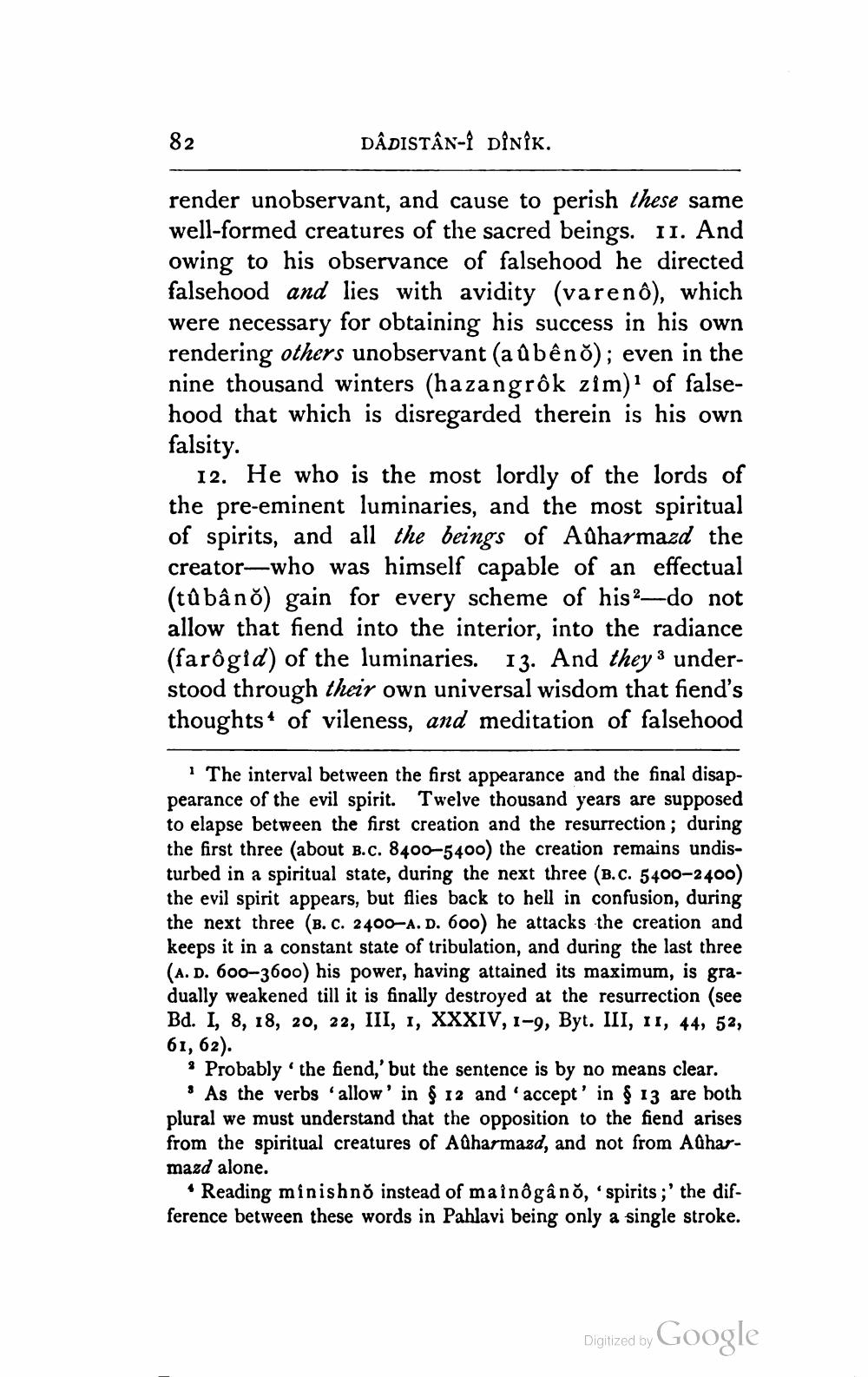________________
82
DÂDISTÂN-I DÎNÍK.
render unobservant, and cause to perish these same well-formed creatures of the sacred beings. II. And owing to his observance of falsehood he directed falsehood and lies with avidity (varenô), which were necessary for obtaining his success in his own rendering others unobservant (a û bêno); even in the nine thousand winters (hazangrôk zim)' of falsehood that which is disregarded therein is his own falsity.
12. He who is the most lordly of the lords of the pre-eminent luminaries, and the most spiritual of spirits, and all the beings of Adharmazd the creator—who was himself capable of an effectual (tû bâno) gain for every scheme of his 2-do not allow that fiend into the interior, into the radiance (farôgid) of the luminaries. 13. And they 3 understood through their own universal wisdom that fiend's thoughts of vileness, and meditation of falsehood
The interval between the first appearance and the final disappearance of the evil spirit. Twelve thousand years are supposed to elapse between the first creation and the resurrection; during the first three (about B.c. 8400–5400) the creation remains undisturbed in a spiritual state, during the next three (B.C. 5400-2400) the evil spirit appears, but flies back to hell in confusion, during the next three (B. C. 2400-A.D. 600) he attacks the creation and keeps it in a constant state of tribulation, and during the last three (A. D. 600-3600) his power, having attained its maximum, is gradually weakened till it is finally destroyed at the resurrection (see Bd. I, 8, 18, 20, 22, III, I, XXXIV, 1-9, Byt. III, II, 44, 52, 61, 62). * Probably 'the fiend,' but the sentence is by no means clear.
As the verbs allow' in $ 12 and accept' in § 13 are both plural we must understand that the opposition to the fiend arises from the spiritual creatures of Adharmazd, and not from Adharmazd alone.
* Reading minishnð instead of mainôgâno, spirits ;' the difference between these words in Pahlavi being only a single stroke.
Digitized by Google




